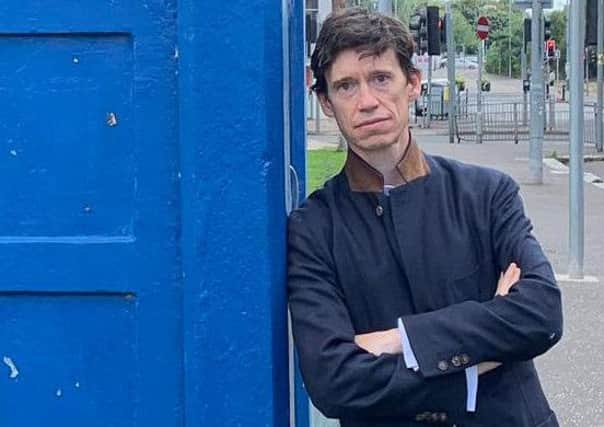Drug addiction in Scotland a "fundamental issue", says Rory Stewart


The Penrith MP, who came fifth in the Conservative battle to replace Theresa May, has re-started his social media “walks” around the UK, starting yesterday in Glasgow.
Speaking at the Edinburgh International Book Festival, he said that there was “no doubt a lack of money and resources” was a real problem. But he added: “There are nearly twice as many heroin users, proportionately in Glasgow as any other city in the UK.
Advertisement
Hide AdAdvertisement
Hide Ad“The fundamental issue is addiction and treatment services. There’s a very large number of people in Scotland addicted and rates in Glasgow seem to be higher.
“But the situation is far better in England than Scotland, maybe two thirds of people who need it receive treatment, in Scotland it’s a third, but rates of addition are twice as many. So the real key is to get off these abstract big stories about austerity to what exactly is happening in that doorway and why is it or is it not working?”
In his first public appearance since he resigned from government he said he was perplexed as to why Mr Johnson was able to sell “fairy tales” and not be grilled on the detail of Brexit, adding “populism seems immune to reality”.
Criticising nationalism as “reductive”, he said it ”involves pretending there’s a big simple solution to the problems of being a modern state.” He added: “Nothing generally is solved by drawing a line in the sand and cutting ourselves off ‘from them’, No deal Brexit is the same - we’re better off on our own. The instinct has to be the opposite.
“The mess and complexity is what makes us, it’s being a tumultuous chaotic country that contains Glasgow and London, the Highlands and Devon that has the tension between Scottish and English and Welsh and Northern Irish that’s what makes us without that we become terribly reduced as an enterprise.”
He said people needed to “dig in against the moral outrage of nationalism in all its forms”. “We live in a very strange country where because of our experience in the Second World War we never really had to think about the consequences of nationalism,” he said.
Drawing parallels between the Churchillian rhetoric of Mr Johnson and the Braveheart ideal of Scottish nationalism, he added: “We think it doesn’t matter talking about Bannockburn or William Wallace or Agincourt, we take it quite lightly because we never went through the experience in the Second World War, we never sensed just how crazy this stuff is - it literally has nothing to do with our lives.
“These people, Robert the Bruce, John Bailliol... the idea that these people have anything to do with modern life is just mad.”
Advertisement
Hide AdAdvertisement
Hide AdWhile he said he would “definitely be willing to give up his future in the party” to stop a no-deal Brexit, he could not support a government of national unity if the outcome was to push for a second referendum as “I’m worried about what a small margin for Remain does to the country.”
He added he had not yet decided if he would run for leader again, he believed politics was “corrosive” and at the heart of a desire to be a Prime Minister is “ego and vanity” and it “might not be possible to be good for very long” in that position.